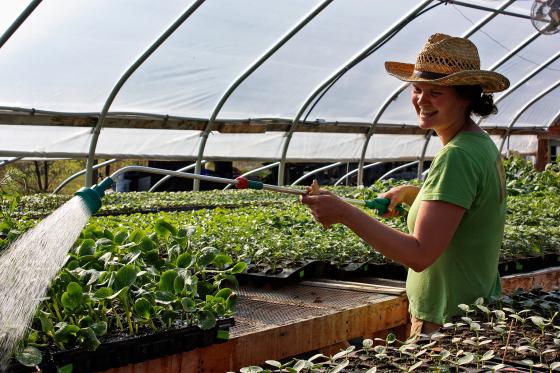Posted March 17, 2022 at 10:36am by Anonymous (not verified)
High Mowing Organic Seeds

A healthy food system begins with seeds. But a healthy Vermont food system requires seeds that are well adapted to Vermont. If farmers and growers sow varieties that don’t thrive in local soils and micro-climates, local agriculture doesn’t thrive. This is why High Mowing Organic Seeds is one of the most unique and valuable food businesses in the state. By making part of its mission the development of seeds that are known to work here, High Mowing fills a niche that out-of-state seeds companies—which tend to be more interested in bigger markets—probably will never fill.
“No seed company in the world particularly cares about Vermont growers or farms,” says Tom Stearns, president and founder of High Mowing Organic Seeds. “No one is selecting breeds or varieties that will grow here.”
Tom and many of his staff of 35 are doing just that, on the company’s land in and around Wolcott and Hardwick, and through partnerships with seed producers in other regions. Although High Mowing is Vermont’s largest seed company, smaller-scale producers—such as Sylvia Davatz of Hartland, who publishes the Solstice Seed Catalogue—are also researching on behalf of Vermont growers.
High Mowing sells primarily to small farmers, both in Vermont and around the country. Tom estimates that all the seed sold by High Mowing last year could plant between 8,000 and 10,000 acres of vegetables, flowers, and herbs. (Vermont currently has 3,000 acres in vegetable production.)
Yet only about one third of the company’s seeds are grown in Vermont; the state just isn’t suited to producing seeds of certain vegetables, such as spinach and lettuce. The rest of High Mowing’s seeds are grown by the company’s 40-odd partners—farms around the United States and the world that are better suited to producing certain seed crops.
So even though High Mowing is helping Vermont agriculture become more independent, it still relies on interdependence. “Everything grows better in other places,” Stearns says—then quickly adds, “But there’s no better place to live.”
Written by Caroline Abels.
